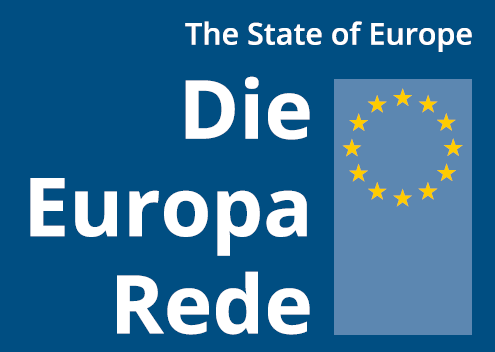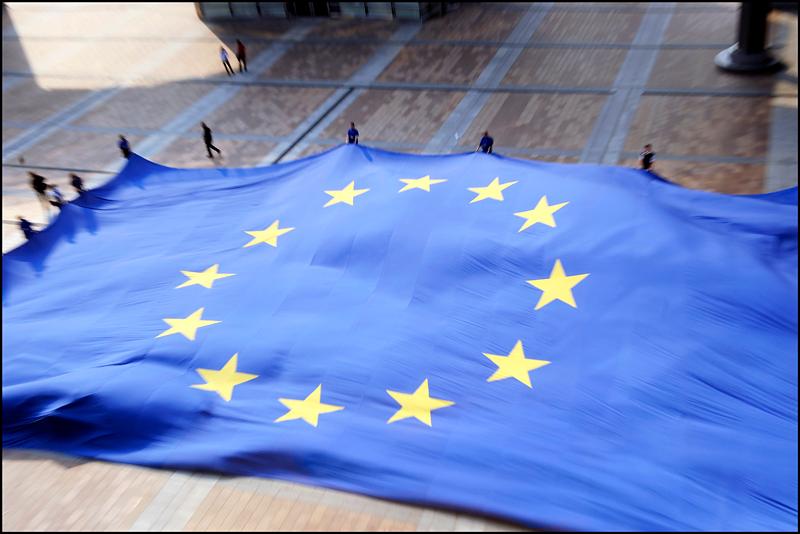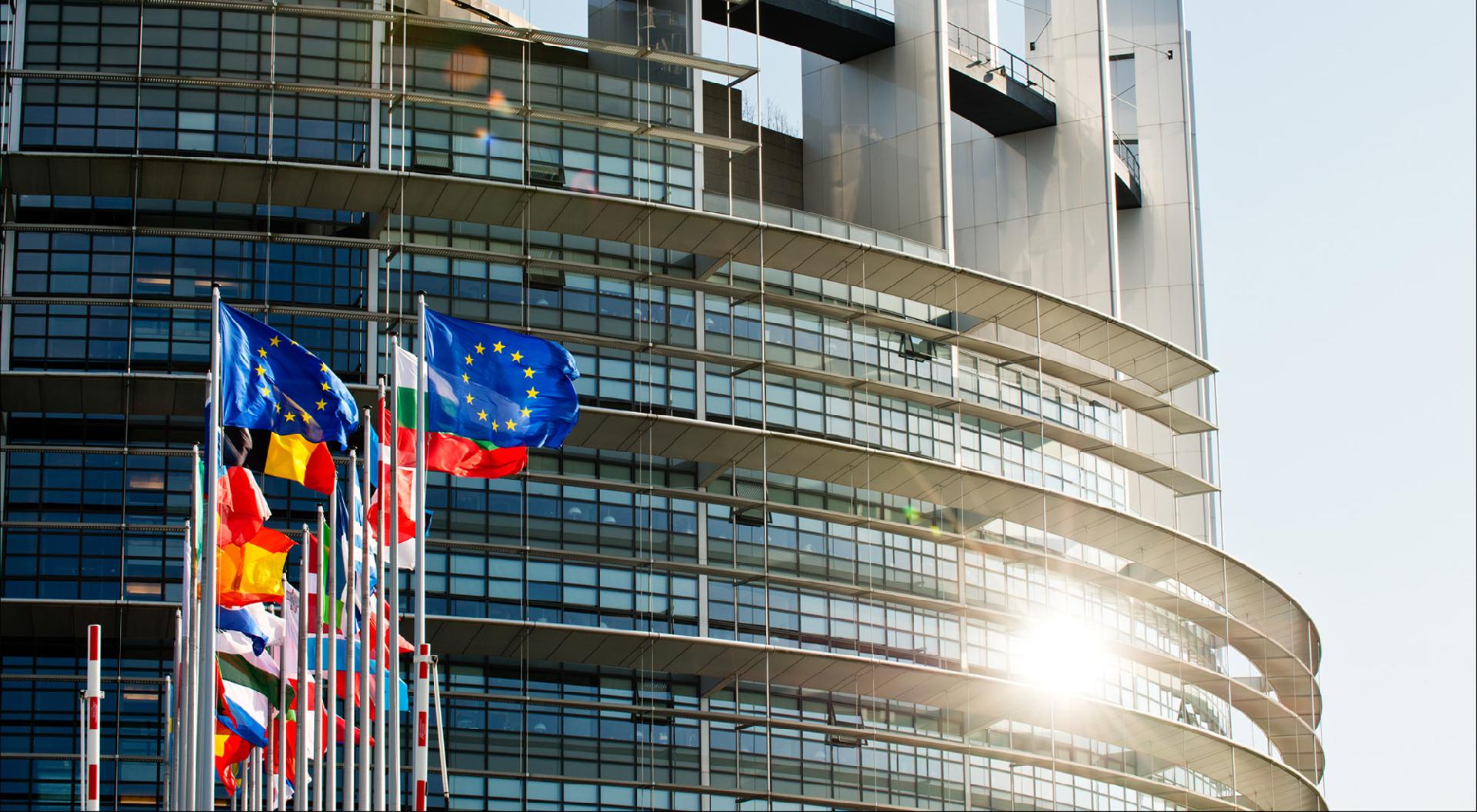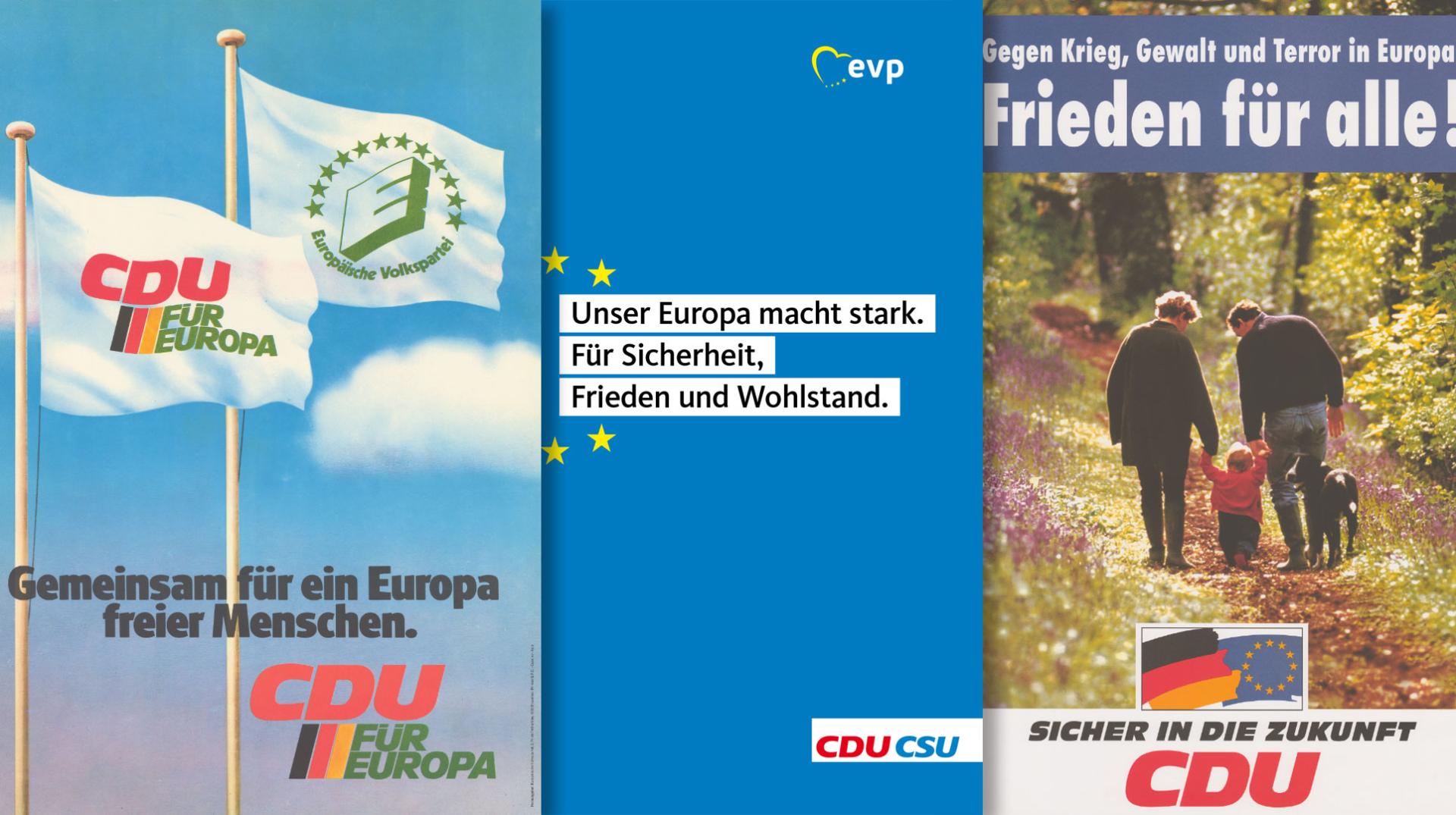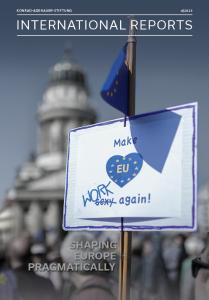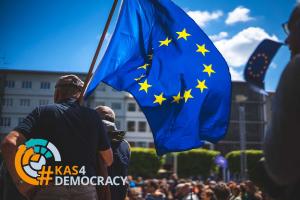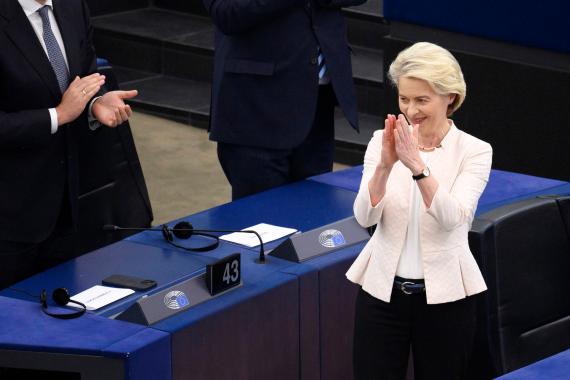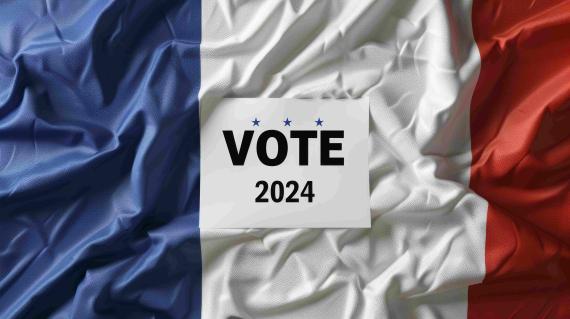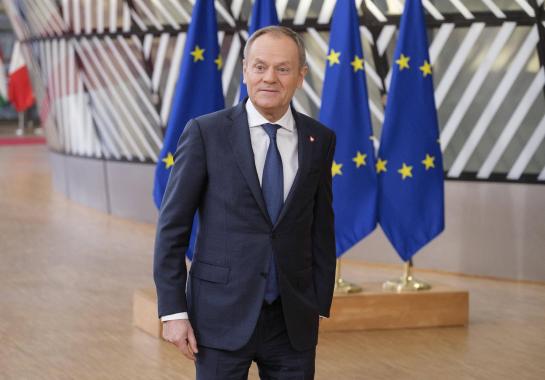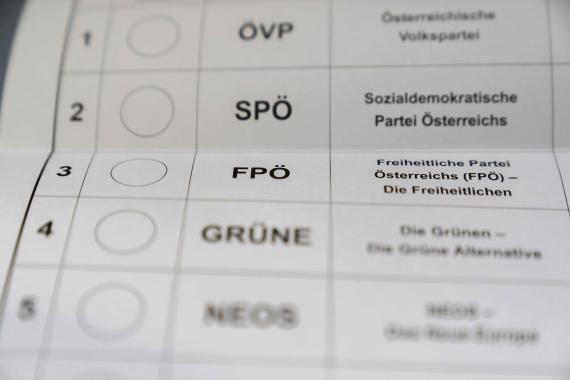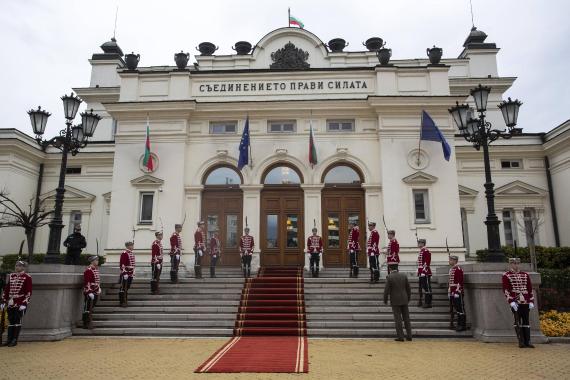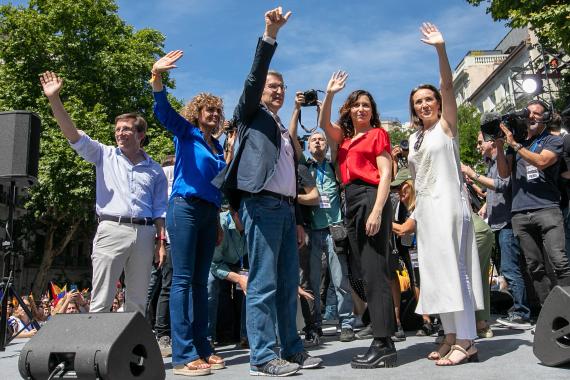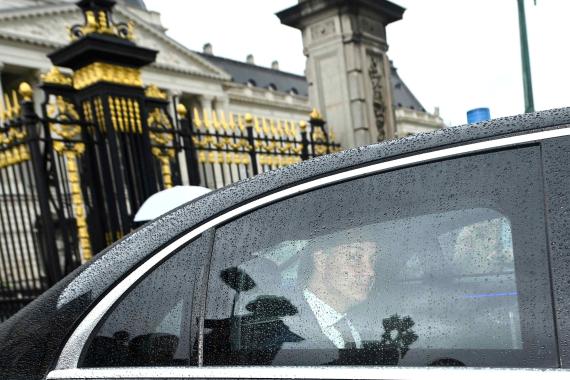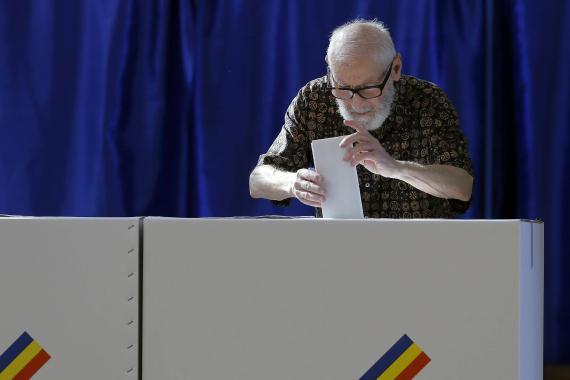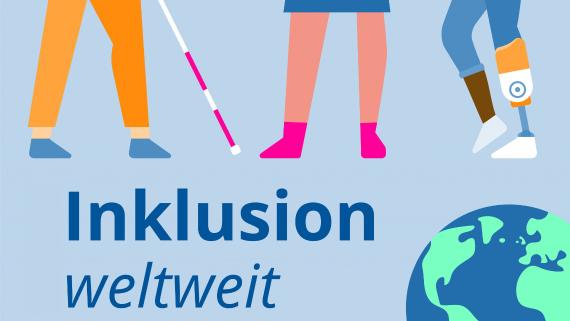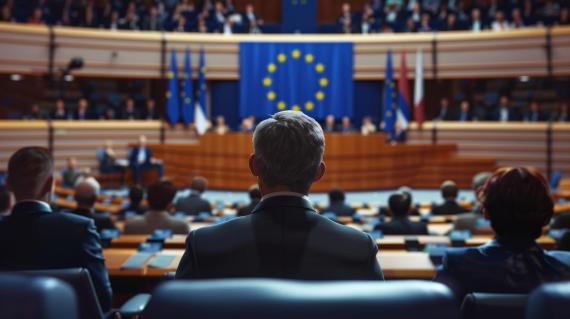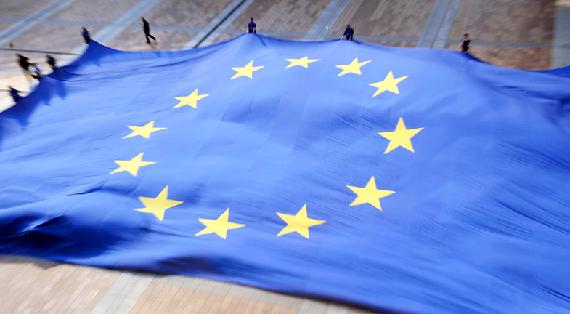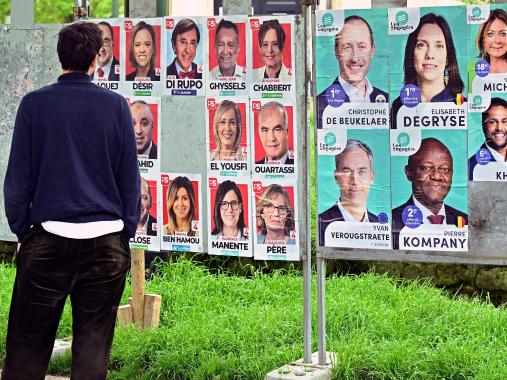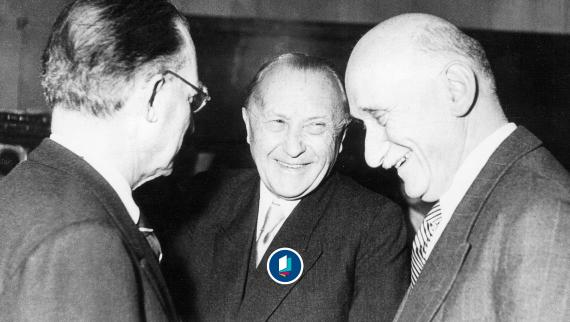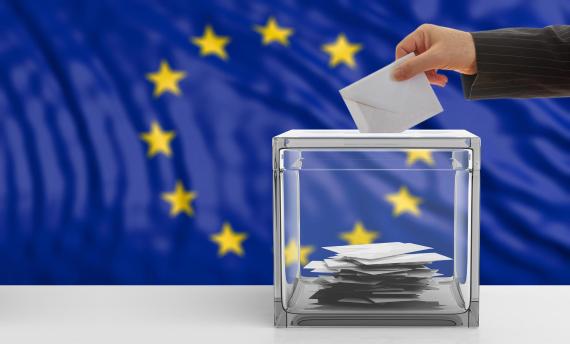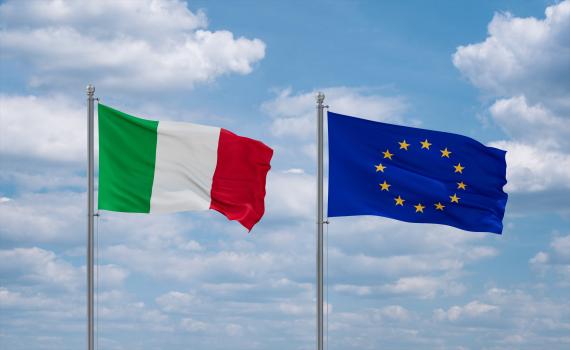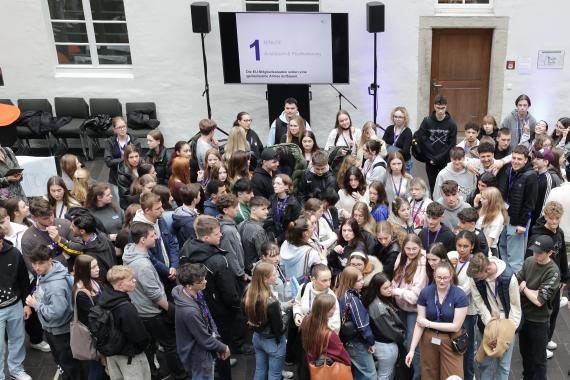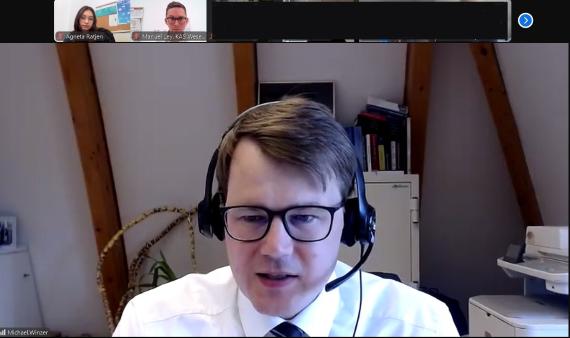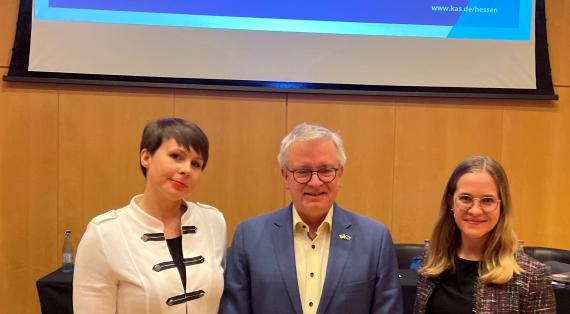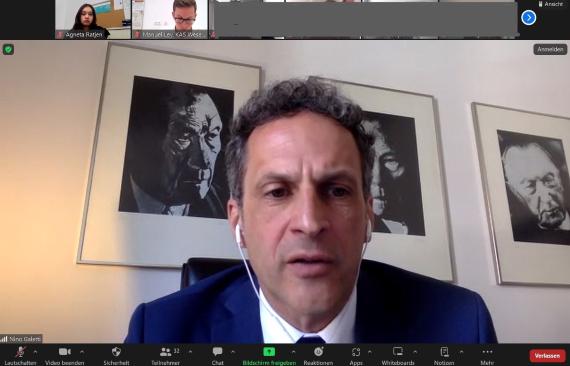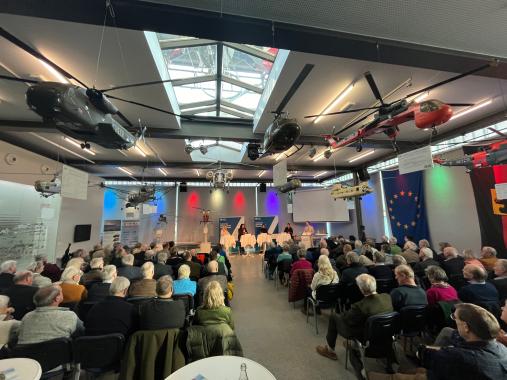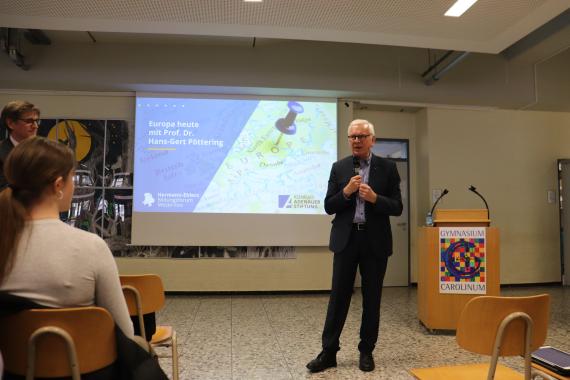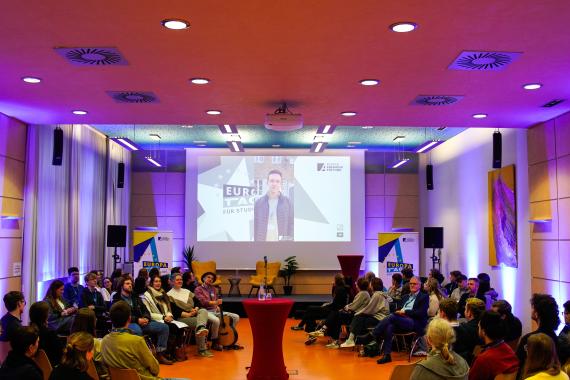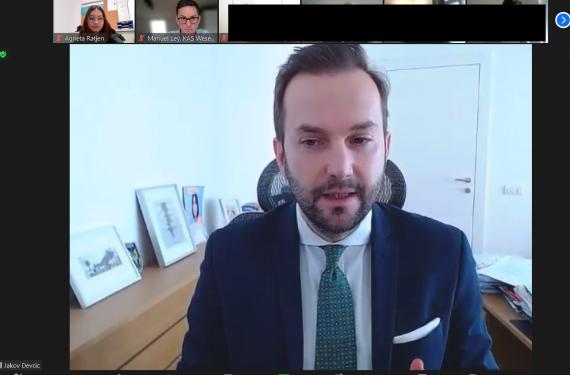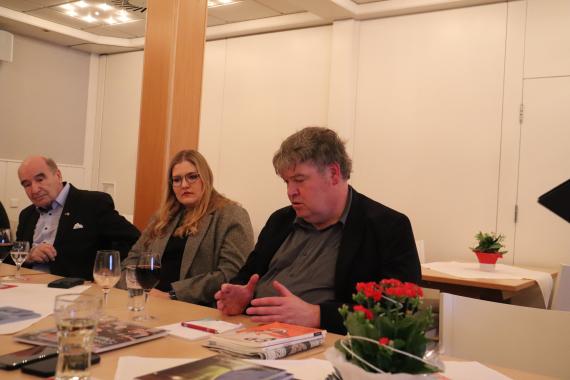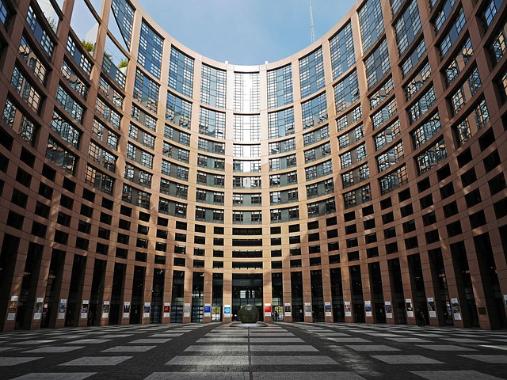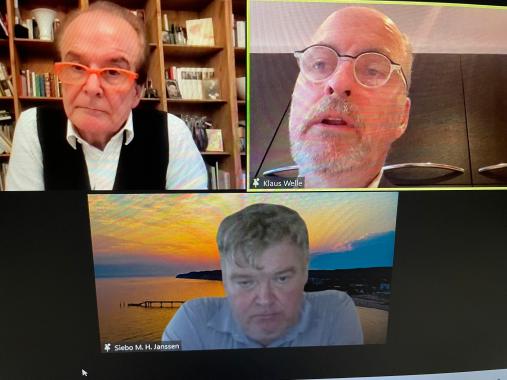Europe is made in its crises and will be the sum of the solutions with which these crises are overcome.
At a glance
- The European Parliament has grown immensely in importance throughout the European Union’s history.
- In most policy areas in which the European Union has legislative power, no decisions can be taken without the consent of the Parliament.
- During the European elections, citizens elect their MEPs directly. This democratic process enables voters to decide on the majority in Parliament and the direction of European policy.
- Important topics for the 2024 European Elections were the promotion of growth, the combating of climate change and the creation of a common asylum policy.
- The Konrad-Adenauer-Stiftung explicitly sees itself as a European foundation. With this in mind, we reject populist and anti-European tendencies and our work contributes towards shaping a successful Europe of tomorrow.
Content
1. The European Parliament as part of the “Institutional Triangle”
2. European elections: importance, participation and implementation
3. Multiple crises and the search for european solutions
4. The Konrad-Adenauer-Stiftung sees itself as a european foundation
5. Our offers and projects on the topic
6. Publications, events and media contributions on the topic
The European Parliament as part of the “Institutional Triangle”
The European Parliament (EP) plays a special role within the institutional architecture of the European Union. Together with the European Commission and the Council of the European Union, it forms an important political trio and particularly in legislative and budgetary procedures.
Throughout the course of history, the European Parliament has gained significant rights of participation. Today, for most policy areas in which the EU has legislative powers, decisions can only be made with the consent of the Parliament. What is more, it has the right to make decisive amendments to draft legislation.
The Parliament also scrutinises the European Commission and adopts the annual EU budget together with the Council. In this way, it is involved in the Union’s financial prioritisation.
European elections: importance, participation and implementation
The majority ratios in the Parliament are therefore crucial for the orientation of European policy. Since 1979, citizens of the member states have directly elected their MEPs. In June 2024, they were called upon for the tenth time to participate in the political decision-making process by casting their votes.
Elections to the European Parliament takes place every five years. It is worth noting that there is still no EU-wide election procedure. The specific procedures vary between the member states, which generally update their national election system for the European Parliament elections with some adjustments. In 2024, people in Germany aged 16 years and over were eligible to vote for the first time.
Since voter turnout had in some cases dramatically decreased over the decades, a significant rise was recorded again in 2019 and 2024. People’s interest in European solutions has also increased against the backdrop of multiple crises.
Multiple crises and the search for european solutions
In the course of the European unification process, the Community has been repeatedly confronted with major challenges. When looking at the last few years, this mainly includes mitigating the impact of the Corona virus pandemic, the Russian war of aggression against Ukraine and increasing global systemic competition.
While domestic pressure has also increased. For instance, anti-European and in some cases anti-democratic political forces succeeded in expanding their influence in some member states. Fundamental values and principles, on which the Union is built, are thus being called into question. Should this trend continue, it will also have a negative impact on the European Parliament’s ability to work.
In addition to the aforementioned domestic and external challenges, the following issues are likely to be of key relevance in the upcoming legislative period: the promotion of growth, employment and competitiveness in the EU, the fight against climate change, as well as the development of a common European asylum policy.
The Konrad-Adenauer-Stiftung sees itself as a european foundation
The namesake of the Konrad-Adenauer-Stiftung, Federal Chancellor Konrad Adenauer, is seen as one of the “fathers of Europe”. His continuous and consistent policy of Western integration was inspired by the vision of a united Europe. Particularly during times of crisis, he was personally highly committed to the unification process. This became clear after the failure of the European Defence Community in 1954, for example.
In keeping with this tradition, the Konrad-Adenauer-Stiftung explicitly perceives itself as a European foundation and takes on the challenges of our time. Analyses, publications, expert discussions, stakeholder networking, conferences and information events will debate the causes of multiple crises, explore the potential for successfully handling the important European policy issues of our time and identifying concrete recommendations for action.
Speech on Europe
The Speech on Europe is the annual statement by the highest representatives of Europe: The President of the Council of the European Union, the President of the European Parliament and the President of the European Commission takes it in turns to present their positions on the idea and state of Europe. The format is a cooperation of the Konrad-Adenauer-Stiftung, the Schwarzkopf-Stiftung Junges Europa and the Stiftung Zukunft Berlin.
Election analyses and polls
Our polls on the European People’s Party (EPP) and analyses on European Parliament elections provide an overview of the state of the EPP party family, and discuss the reasons behind voter migration as well as the performance of the German parties in elections to the European Parliament.
EPP Party Barometer
Our EPP Party Barometer presents an overview on the current situation of the EPP party family in the EU. In this format, we summarise and present election results and surveys from the member states at irregular intervals.
Elections to the European Parliament
Since 1979, the European Parliament has been elected every five years in the Member States of the European Union. The election of members of parliament is free, secret and direct. The Konrad-Adenauer-Stiftung analyses the European Parliament elections in its own publications and discusses the reasons for voter migration and the election result in Germany.
Learn more about election analyses of the European Parliament elections since 2004
Learn more about election results of the European Parliament elections since 1979
Archive holdings on the subject of European elections
The Archive of Christian-Democratic Policy (ACDP) of the Konrad Adenauer Foundation collects archival documents of Christian democracy, makes them accessible to users and promotes academic research. Documents of European parliamentarianism are also part of the collection in order to research the involvement of Christian Democracy in the European integration process. With the help of research guides, we lead you thematically through our holdings.
Research guide: European elections
“Together for a Europe of free people” - With this call, the European People’s Party (EPP) entered the first direct elections to the European Parliament in 1979. Since then, the citizens of the member states have been electing their representatives every five years. The European parliamentary elections were held for the tenth time from June 6 to 9, 2024.
The research guide: European elections presents a selection of sources for research into European parliamentarianism. A small selection of documents, posters and advertising material for each European election is also available as digital copies.



